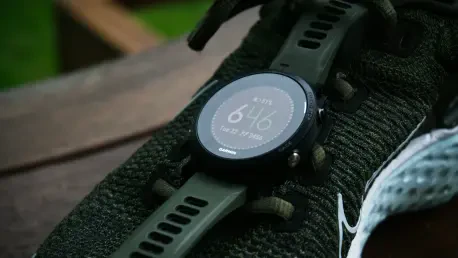As the collection of medical data becomes increasingly prevalent in the US, Garmin users are growing concerned over the implications of data utilization in autism research. The study, spearheaded by US Secretary of Health Robert F. Kennedy Jr., aims to uncover the causes behind the rising diagnoses of autism, leveraging data from various sources such as fitness trackers. The potential involvement of Garmin data has users questioning the privacy and security of their personal information, sparking a vigorous debate on numerous platforms, including Reddit.
Privacy Concerns Among Garmin Users
Reddit users have voiced apprehension regarding the possibility of their Garmin accounts being linked to other health data, raising the concern of whether they can opt out of this data linkage. This concern has resonated with many, reflecting a broader issue of balancing benefits and privacy risks. Reports indicate that health insurance providers are offering free fitness trackers, which in turn, utilize personal data. Increased access to this health data may lead to higher insurance premiums, prompting many users to limit what they share with insurers.
This ongoing debate among users showcases a distinct divide: some fiercely defend their right to privacy, while others accept the inevitability of data collection, seeking benefits like discounts and gift cards in exchange for their data. A general consensus suggests that any data-sharing initiative by companies like Garmin should be on an opt-in basis, as opposed to mandatory inclusion.
Efficacy of Non-Medical Devices for Research
Critics of the NIH’s plan to use data from non-medical devices like smartwatches argue that such equipment may provide inconsistent data due to irregular usage patterns among individuals. Not everyone wears these devices continuously, leading to potential gaps and inaccuracies in the collected data. A prevailing concern is that this data could negatively impact users, with fears of insurance policies being revoked due to misleading health data.
Nevertheless, advocates propose that the integration of anonymized fitness data could transform healthcare, normalizing its use and enabling refined medical insights. Despite promising benefits, skepticism remains strong, particularly among tech-savvy users wary of privacy infringements and data misuse.
Broader Implications and Industry Trends
Samsung’s recent initiative to integrate medical records with its Health app faced similar skepticism, underlining widespread concern over the utilization and protection of health data. The broader industry trends indicate a growing tension between technological advancement in medical research and the privacy concerns of device users.
The ethical implications of using non-medical device data in autism research further compound these concerns, highlighting the need for secure data management practices and clear opt-in mechanisms. As tech industries navigate these challenges, the balance between innovation, ethical considerations, and user privacy remains tenuous and deeply debated.
Summary and Future Considerations
As the collection of medical data becomes more widespread in the US, Garmin users are increasingly concerned about the implications of their data being used in autism research. This study, led by US Secretary of Health Robert F. Kennedy Jr., aims to identify the causes behind the growing number of autism diagnoses. It plans to utilize data from various sources, including fitness trackers like Garmin. The possible use of Garmin data has sparked concerns among users about the privacy and security of their personal information. This has led to a heated debate on multiple platforms, especially Reddit, where Garmin users discuss their unease and raise questions about how their data might be used without their explicit consent. The controversy emphasizes the broader issue of data privacy in the digital age and highlights the need for clear guidelines and transparency in research studies involving personal data.









